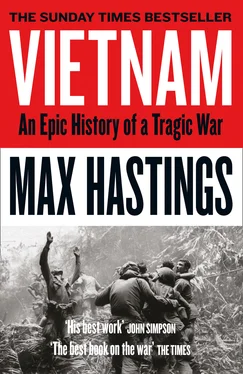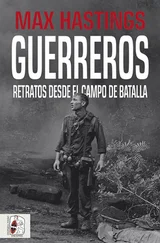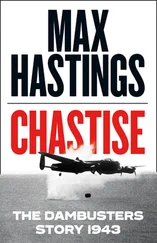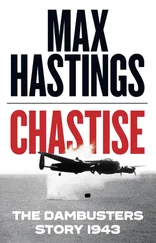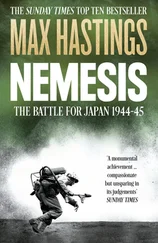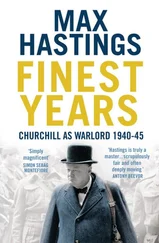McNamara’s admirers respected his aloofness as reflecting impartiality and incorruptibility: he was even touted as a possible 1964 running mate for Kennedy. Hanson Baldwin, the respected military commentator, wrote a piece in the Saturday Evening Post headed ‘The McNamara Monarchy’, describing the new defense bureaucracy. But the secretary’s enemies, many of them uniformed, deplored his hubris. He developed an ill-founded belief that he understood the military. James Reston later wrote shrewdly in the New York Times : ‘He has the sincerity of an Old Testament prophet, but something is missing; some element of personal doubt, some respect for human weakness, some knowledge of history.’ Between 1961 and 1967, McNamara nonetheless wielded greater influence on Vietnam policy than any of his fellow-countrymen save successive presidents.
The main thing those Americans who really knew about Vietnam knew was how little they knew. Military adviser Gordon Sullivan had volunteered, terrified the war would be over before he could get to it. The twenty-five-year-old lieutenant from Massachusetts landed in country after a six-week Vietnamese-language course which taught him a few staple phrases. He found Saigon ‘idyllic, just a sleepy town on the river: no bomb-screens, Filipino band music blaring across Tu Do. It wasn’t easy to be an adviser in those days: I had a radio, but there was nothing on the other end of it’ – from beginning to end of the war, US advisers were chiefly valued by the Vietnamese for their power to magic artillery and air support through a handset. Sullivan’s incoming group was warned: ‘Remember that you guys aren’t even supposed to be here.’ He landed at a two-bit airstrip near the Cambodian border, which boasted a wrecked H-21 beside the runway and a sign by the control tower announcing that it stood two feet above the water level in the dry season, two feet below in the wet. The officer who drove a jeep up to collect him greeted him with ‘Hi Sullivan. Do you like eeny-weenies and cocktail onions? Our team chief gets a fresh shipment every two weeks.’
In the months that followed, the lieutenant and an NCO drove all over the delta with a huge crate of medicines which they dispensed in the villages, between inspecting strategic hamlets. Looking back on the craziness of their wanderings across a region already teeming with Vietcong, Sullivan reflected: ‘It was an adventure … There was no logical reason why we survived.’ He ‘tried to reach out to the Vietnamese’, but they seemed to function on a different voltage. Another adviser, Lt. Col. John Paul Vann, told Frank Scotton soon after the latter’s arrival in country: ‘Hell, I don’t even know what is going on across the river at night.’ Special Branch officer Capt. Phan Tan Nguu said of his relationship with CIA counterparts, ‘I only told the Americans what I thought they needed to know.’
An important 1962 Pentagon war game, SIGMA I, estimated that half a million US troops would be needed to defeat the communists. A subsequent SIGMA II examined an air-war option, and concluded that no amount of bombing would deflect Hanoi. The conflicting evidence and projections put before the policy-makers caused the various factions in Washington to box the compass with rival proposals, repeatedly changing their minds. Throughout the Kennedy era Pentagon brass favoured bombing the North – and opposed the commitment of ground troops.
3 LE DUAN RAISES HIS STAKE
In the course of 1961–62 the North Vietnamese government tilted away from Russia, towards closer links with China, yet still neither power encouraged Hanoi to escalate. The communists felt enmeshed in a sufficiency of turmoil elsewhere – Cuba, Berlin, Albania, Congo. The North’s domestic difficulties persisted: its population was increasing by half a million a year, yet grain production per head had fallen. China was taking a substantial portion of the country’s rice output and three-quarters of its coal in return for a drip-feed of cash. There was a massive migration of hungry peasants towards the cities, and little for them to do when they got there: raw-materials shortages caused factories to languish.
From May 1961 North Vietnam’s allowance of meat, which included cat and dog, fell to barely four ounces a week per person. That summer hunger protesters set fire to rice stocks amid clashes with troops, and in August burned down a bicycle factory. A bomb exploded in the city of Dong Anh. There was a local army mutiny, and on two occasions Hmong tribesmen attacked army convoys. South Vietnam and its US advisers encouraged such acts, and ran a programme of risibly unsuccessful commando stabs into the North. However, the dissent among Ho Chi Minh’s people was overwhelmingly spontaneous, driven by hunger and met with repression, which worked. By October 1961 a French diplomat reported that people had been reduced to ‘passive resignation’. Duong Van Mai said of the Northerners: ‘People were incredibly uninformed. It was as if they were sitting at the bottom of a well, seeing only a patch of sky. The communists had so many mechanisms of control.’
Le Duan now dominated Hanoi’s policy-making, as he would continue to do for the next quarter-century, though the world did not know this. In the Hollywood epic El Cid , the corpse of the eponymous Spanish medieval hero is strapped into the saddle to lead his army to one final victory. Something of the same was true of Ho Chi Minh. He was haunted by fears that Vietnam would become a new Korea, a devastated battlefield on which Americans and Chinese contested mastery. As his health declined and younger men grasped the initiative, he abdicated mastery and even influence on war-making. But he remained an indispensable figurehead, commanding respect across much of the world. Ho and prime minister Pham Van Dong remained the public faces of North Vietnam’s leadership, while Le Duan was almost invisible. The Moscow-leaning Giap became the object of animosity from comrades who deplored his bloated personal staff and lust for celebrity. One called him ‘a show-off and braggart’. The armed forces’ former chief logistician at Dienbienphu hated his old commander, and often complained about him to Ho. Another senior general and cabinet minister, who was also a brother of Le Duc Tho, likened the veteran to an old barrel, growling, ‘The emptier a barrel, the louder it booms.’
Le Duan displayed skill and patience in conducting relations with the Soviets and Chinese. He liked to quote a Vietnamese version of the English proverb ‘When in Rome’: ‘Visiting a pagoda, you must wear the robes of a Buddhist monk, and when you walk with a ghost you must wear paper clothes.’ He and his clique considered the Russians untrustworthy and weak, not least because they had blinked first in the Cuban missile crisis. Among those hard men the Spartan ethic – a willingness to suffer in pursuit of a high purpose – reigned supreme. Le Duan deplored the need to travel repeatedly to Beijing as a suppliant, and to endure its snubs. One of his acolytes claimed that on a 1961 visit Zhou Enlai challenged him, ‘Why are you people conducting armed struggle in South Vietnam? … If the war expands into the North, I am telling you now that China will not send troops to help you fight the Americans … You will be on your own, and have to take the consequences.’
Le Duan sometimes referred to Mao as ‘that bastard’, and when China’s chairman once fantasised aloud before a Hanoi delegation about sending his People’s Liberation Army to liberate the South, he awakened every visceral Vietnamese fear of their neighbour’s imperialistic inclinations. While Le Duan leaned towards China, he forswore direct criticism of the Soviet Union, because Hanoi needed its more sophisticated weapons and plant. He often made cynical remarks about the parsimony of Chinese aid, professing to believe that Beijing regarded the Vietnamese revolution as ‘a bargaining chip in negotiations between China and the US’.
Читать дальше
